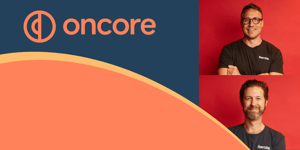Ryan Lynch and Michael Boyd are both Co-founders and Directors at specialist technology recruitment agency Iterate, one of the fastest-growing agencies in the IT space based in Melbourne.
Here Ryan and Michael share their experiences of setting up on their own after years of working for other people within large recruitment agencies. Plus their experiences of running a contractor book as a partnership and insightful advice others can consider when building or growing an agency.
You have come from a large agency background before stepping out on your own. What inspired you to start your own agency, and why was a contract book part of that decision?
Michael: I have always been entrepreneurial. Starting with my lawnmowing business at the age of 13, I have always wanted to build something of my own. I needed a new challenge. My contract book was always 75% of my revenue at my previous job, so I always intended to focus on placing contractors.
Ryan: Building something from scratch that we owned ourselves was our motivation. Moving away from the large agency with multiple levels of bureaucracy. We also saw the direction Greythorn was going after its acquisition by Manpower Group/Experis. We knew a contractor book was always going to be a big part of growing a boutique agency – both in terms of revenue and future value.
What practical steps did you take to start your agency on the right foot and ensure you remain compliant?
Michael: We engaged lawyers & accountants early in the piece. We trademarked our name, got our ducks in a row legally and started speaking to people like Oncore to get the proper frameworks in place. We spoke to mentors in the industry and got advice from others that had gone before us.
Ryan: We made sure we had the right foundations in place: VLA labour-hire license, contracts from our lawyers, a payrolling company (Oncore), Accountant & accounting software – the basics. We also consulted other business owners who’d gone down the same path. We ensured we tackled a lot of this early on the piece so we were well-armed to engage with contractors when we won work.
50% of small businesses fail in the first year. What issues did you face in your first 2 years of business?
Michael: We’re actually not even 2 years old yet (2nd birthday in May this year). One issue we have faced were trading restrictions for 9 months from our previous employer, so we really had to develop a new business from scratch.
Ryan: This was a blessing in a way as it forced us to explore the wider market, utilise our network and go where the business was. Pandemic and lockdown has also been a bump in the road – we lost around 75% of our contract book and over 90% of our overall pipeline over this period.
How important is it to understand cash-flow management? And the true cost of running an agency?
Michael: It’s critical. One of the main takeaways from chatting to other agency owners before we launched was to put at least 30% aside for future tax bills which we do religiously. We’ve also engaged an accounting firm on a monthly retainer that handles our bookkeeping and updates us with P&L & monthly reporting which is the best money we’ve spent.
Ryan: Things like GST, payroll tax, insurances, Workcover, etc. – as well as paying commission to consultants were all part of the cash flow management. You get experienced in ensuring you always have a buffer – along with a good bookkeeper to keep on top of invoicing, reconciliation, etc.
How did you win your clients, and how did you keep them during this pandemic?
Michael: Relationships and trust in short, which is built up over years. And how do we keep them coming back? Delivery! Also empathy & helping out during COVID times with introductions without fees & sharing any information and assistance you can that might help.
Ryan: This has been crucial in surviving the pandemic; from existing clients who want to work exclusively, to following old contacts who move companies – these have ensured we’ve kept busy throughout the pandemic. This has also been based upon our ability to deliver over the years. During 2020, certain sectors of the tech industry have been thriving so another approach has been keeping informed and discovering these growth sectors in order to win business in those key areas.
What leads to more success? Being client lead or candidate lead in this ‘short term, contract’ market?
Michael: I’ve found people have come to us because our great reputation has meant that we have a strong network in our candidate market. A lot of our new business comes from existing relationships when contacts of ours change companies, so we’re definitely still very much focusing on developing and fostering client relationships.
Ryan: With my previous example of growth areas – this has been very much client lead, and then it has been up to us to show the initiative and capitalise on it.












_11zon%20(1).jpg?width=302&height=124&name=linkedin-sales-solutions-vqWWOnA6--M-unsplash%20(2)_11zon%20(1).jpg)






